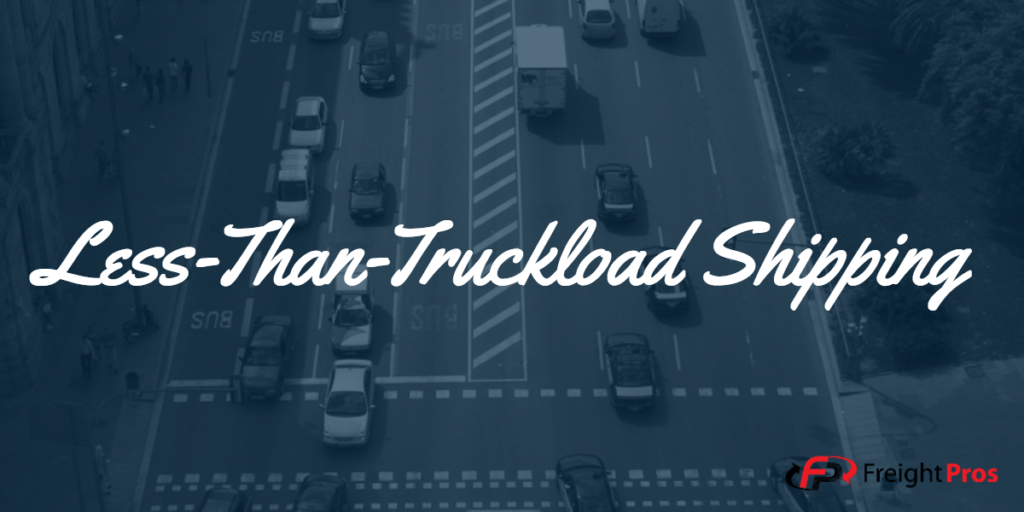Everyone wants to save money on shipping. No great secret there. At FreightPros, we're committed to helping our customers, and their customers (and really anyone that's interested in shipping) save time and money on their logistics.
To that end, we've compiled a list of 25 Genius Tips for Saving Money on Your Shipping. We've categorized them for easy digestion between the General Freight Industry, Less-Than-Truckload (LTL), and Full Truckload, but you'll find that most of our tips can be used in any form of shipping. So buckle up, call the kids in for dinner, and prepare to save some serious cash next time you ship.
1. Know Your Industry
The world of shipping is big and bad, and you've got to know your enemy. Whether it's LTL, truckload, or parcel, you've got to know the details of your industry before you can master it. Download our Beginner's Guide to Freight Shipping to get started.
2. Reuse Your Packing Materials
It's easy to save and reuse bubble wrap, packing peanuts, air pillows, and any other sort of packing materials you might get in your next online retail purchase. Anything you save and reuse is something you don't have to buy. Props to Alan Henry over at Lifehacker for the tip.
3. Don't Spend Money on Cardboard Boxes
With a little effort and ingenuity, you can find these bad boys all sorts of places. Hit up liquor stores, grocery stores, and places like Starbucks to help save the environment and cut costs. Brand new cardboard boxes are expensive, and used ones usually work just as well.
4. Make Sure Your Freight is Ready Before Scheduling a Pickup
Shipping is not like calling a cab or Uber. You can't get your freight ready to ship while the driver is on his way. Make sure your freight is ready to go, or else you might end up with a dry run fee, and that can cost you cash.
5. Know the Difference Between "Value" and "Price"
The lowest price is not always the best value. Sometimes, paying more up front can avoid additional costs later on. By using a freight broker, you might pay a higher initial cost, but often times they are an excellent investment further down the line of your shipment, or if/when something goes wrong.
6. Pay Attention to Your Invoices
Don't assume your freight charges are always correct. Always review your invoices, and don't be afraid to take your questions and concerns to your broker or carrier. Big thanks to Jose Li, and the Fundbox blog for the tip!
7. Don't Always Trust Freight Calculators
LTL shipping quotes are about more than weight and shipping locations. Online freight calculators can give you a false idea about your freight quote, and that can cost you money in the long run.
8. Know the Lingo
Don't get confused by weird acronyms or definitions in the freight industry. The pages of a shipping dictionary are numerous, and can feel never ending. Get to know your freight terms, and you'll be able to put them to good use to streamline your freight experiences.
9. Inspect Your Shipment at Delivery
Make sure to notate any damage on your delivery receipt. Even if it seems like a little thing, a scratch here or there, mark it on the POD (Proof of Delivery). Without notated damage, you won't be able to file a freight claim for any damage/loss, and this will cost you money.
10. Cut Down on "Stated" Shipping Costs
Nobody likes paying a ton for shipping (obviously). Adjust your prices to include some of those costs, and your customers will be more likely to buy. Shoutout to Cameron McCool at Bench for the tip.
11. Shop Around on Volume Quotes
Not all volume quotes are created equal. Some freight companies specialize in large markets, small markets, or particular geographic locations. Start your quote search early, and try to find your best deal.
12. Lighten Up
Weight is a major component of pricing in shipping, so avoid heavy packing materials. Go with packing peanuts instead of wool blankets. Anything you can do to cut down on the total weight of your shipment is going to help you get a cheaper freight quote.
13. Know Your Freight Class
Another major factor in the price of a quote is the freight class. Getting the right one is key, or you may end up with a reclass. Given that freight class can be so confusing, it's important to get a handle on it early. Reclasses are a pain in the butt, and cost you money on your shipping.
14. Cut Out Delivery Appointments
It can be tough, but carve out an afternoon to hang out at the house. By giving the freight carrier a large window to deliver your shipment, you can avoid paying extra for a delivery appointment.
15. Get Third Party Insurance
It might cost a little more up front, but if you're shipping expensive or fragile items it will make all the difference if something gets lost or damaged during transit. Most carriers have their own freight insurance, but it rarely covers the full cost of a damaged shipment. Getting third party insurance gives you peace of mind, and makes filing a freight claim much easier.
16. Consolidate Your Shipment
Packaging items together can significantly cut down on shipping and packaging costs. By consolidating your shipment you can cut weight, density, and a chance of damage or loss. It's easier to keep track of one piece of freight than it is to keep track of five or ten (especially if they're small boxes).
17. Pick Up Your Freight at the Terminal
To avoid additional shipping fees like liftgates and residential deliveries, you can always go pick your shipment up from the delivering freight terminal. All you have to do is call the carrier and let them know you're on their way.
18. Determine if Your Shipment is LTL or Parcel
If your shipment is small enough, you can save money using small package or parcel shipping instead of LTL. Parcel shipping is a totally different animal than LTL, so it's important to recognize the difference between the two. Thanks to Steve Chou over at My Wife Quit Her Job for the shipping info.
19. Use a Density Calculator
With more and more freight classes being dependent on density, using a density calculator can help you avoid costly reclasses. Knowing your shipment's density can help in all sorts of ways, and contrary to a freight calculator, you can rely on a density calculator to give you the information you need.
20. Hire a Professional
Freight brokers can get you better shipping quotes, not to mention they can help out with claims, damage, tracking, and so much more. A freight broker is not the same as a freight carrier, and a professional freight broker is key no matter how often you're shipping LTL or (especially) full truckload freight.
21. Ship Early to Avoid the Holiday Crunch
Avoid delays and expedited costs by shipping at least a week early around the holidays. Both LTL and truckload slow down as drivers and carriers take take off work for the holidays. Don't wait to send your stuff. Thanks to Taryn Williford at Apartment Therapy for the tip!
22. Know How Much Room You Need
Always know how many square feet of truck space you'll need. There is always the chance of "Partialling" a shipment to save money, but if you don't know exactly how much space your freight will take up then that won't be an option. If you're using standard pallets (you should be), know your count and if they're stackable.
23. Don't Forget About Intermodal
If your freight is not time sensitive you can save some serious dough by utilizing the rail and shipping your stuff intermodal. You'll need a broker to help you out with the intermodal process, but by using the rail you can get cheaper freight quotes for your full truckload shipments.
24. Track Carrier Performance
Just like volume quotes, not all freight carriers are created equal. Try different carriers and track their performance to make sure you're using the right carrier for your freight. Once you find one that you like and that treats you right, stick with them. Having great relationships with owners and operators can get you out of a shipping bind in the future.
25. Take Advantage of Backhauls
When you're shipping truckload, getting a carrier on a backhaul can save you serious cash. Once again, you'll need a broker with knowledge of the trucking markets to get you the best deal on backhauls. Some times of the year are better than others, so ask your broker if backhaul could work for you.


